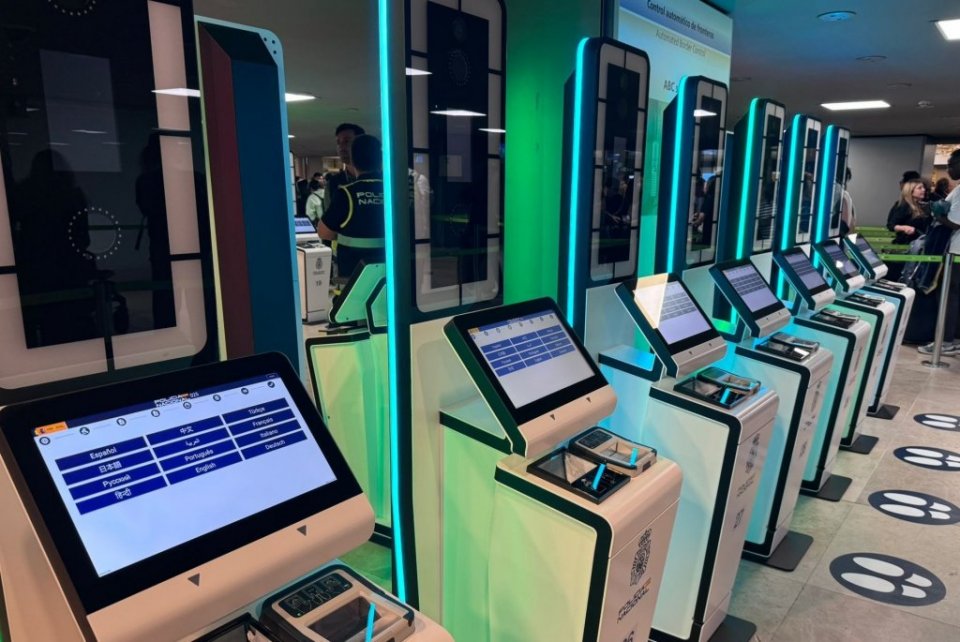Starting Sunday 12 October, non-EU travellers entering Europe’s Schengen zone will begin to have their fingerprints and photographs taken at border checkpoints, as the European Union introduces its long-delayed automated border control system.
The new Entry/Exit System (EES) is designed to phase out the manual passport stamp and improve data-sharing between the EU’s 27 member states.
‘This is a significant step towards a more secure and efficient border management system for the EU,’ said EU spokesman Markus Lammert.
The system will record when travellers enter and leave Schengen countries, helping authorities identify those who overstay their visas or have been refused entry.
Although discussed for nearly 10 years, the rollout has stirred unease among passengers and transport operators, who fear that the additional checks could create long lines at airports and train stations. To reduce disruption, the EU will introduce the system in stages, starting 12 October.
In this first phase, non-EU visitors entering for short stays in any EU nation – except Cyprus and Ireland – will need to provide their passport details, fingerprints and a photo at automated kiosks. The same procedure will apply in Iceland, Liechtenstein, Norway and Switzerland, which are part of the European Economic Area.
Some smaller countries will have the system fully operational from Sunday. Every member state must implement automated checks for all passengers by mid-April.
British travellers will also be affected, as the UK is no longer part of the EU. UK authorities have warned that ‘each passenger’ should expect to spend ‘a few extra minutes’ at border control before entering the Schengen area.
Operators of the Channel Tunnel and Eurostar say they are prepared. Getlink, which manages the tunnel, and Eurostar have both said they are ‘ready’ and expect a smooth transition. The checks for UK passengers will take place before departure, including at London’s St Pancras station and the port of Dover, where new terminals have already been installed.
The European Commission has pledged information campaigns to support the rollout of the EES. ‘EES will contribute to prevent irregular migration and help protect the security of everyone living in or travelling to Europe,’ it said.
The next step in the EU’s border reform will be the introduction of the European Travel Information and Authorisation System (ETIAS), similar to the US ESTA or the UK’s electronic travel permit. Travellers from visa-exempt countries will need to fill out an online application and pay a small fee before visiting the EU — the amount is still being finalised. ALSO READ: UK imposes ETA travel entry permit on Europeans from Wednesday 2 April.
Non-EU nationals resident in the EU
Non-EU nationals who are resident in the EU or Schengen zone will be exempt from EES checks. They will instead be required to show their passport and residency permit/visa when crossing a border, just as they do now. However, please note that individual border guards might not yet be clear on the processes and rules for non-EU residents of the EU, as illustrated in previous reports immediately after Brexit.
Click here for full details of who the EES system does not apply to.
Subscribe to the Weekly Newsletter from Spain in English.
🇪🇺 España ha activado hoy con éxito, en el aeropuerto Adolfo Suárez Madrid-Barajas, el Entry Exit System #EES, el nuevo sistema europeo de control de fronteras para ciudadanos de fuera del Espacio #Schengen.
— Ministerio del Interior (@interiorgob) October 12, 2025
🧳 1.819 viajeros registrados entre las 6 y las 10 horas. pic.twitter.com/kZ04rHQoek
🇪🇺 ¡El #EES de la UE ya está activo!
— Ministerio de Asuntos Exteriores, UE y Cooperación (@MAECgob) October 12, 2025
Si eres nacional de un país no perteneciente a la UE, el nuevo sistema registrará:
🔸 Fechas de entrada y salida
🔸 Documento de viaje y datos biométricos
Para una Europa más segura.
Más info 👉 https://t.co/RADJv6K0LQ #TravelToEurope pic.twitter.com/Vdr2jj0ZcJ
Click here to get your business activity or services listed on our DIRECTORY.


